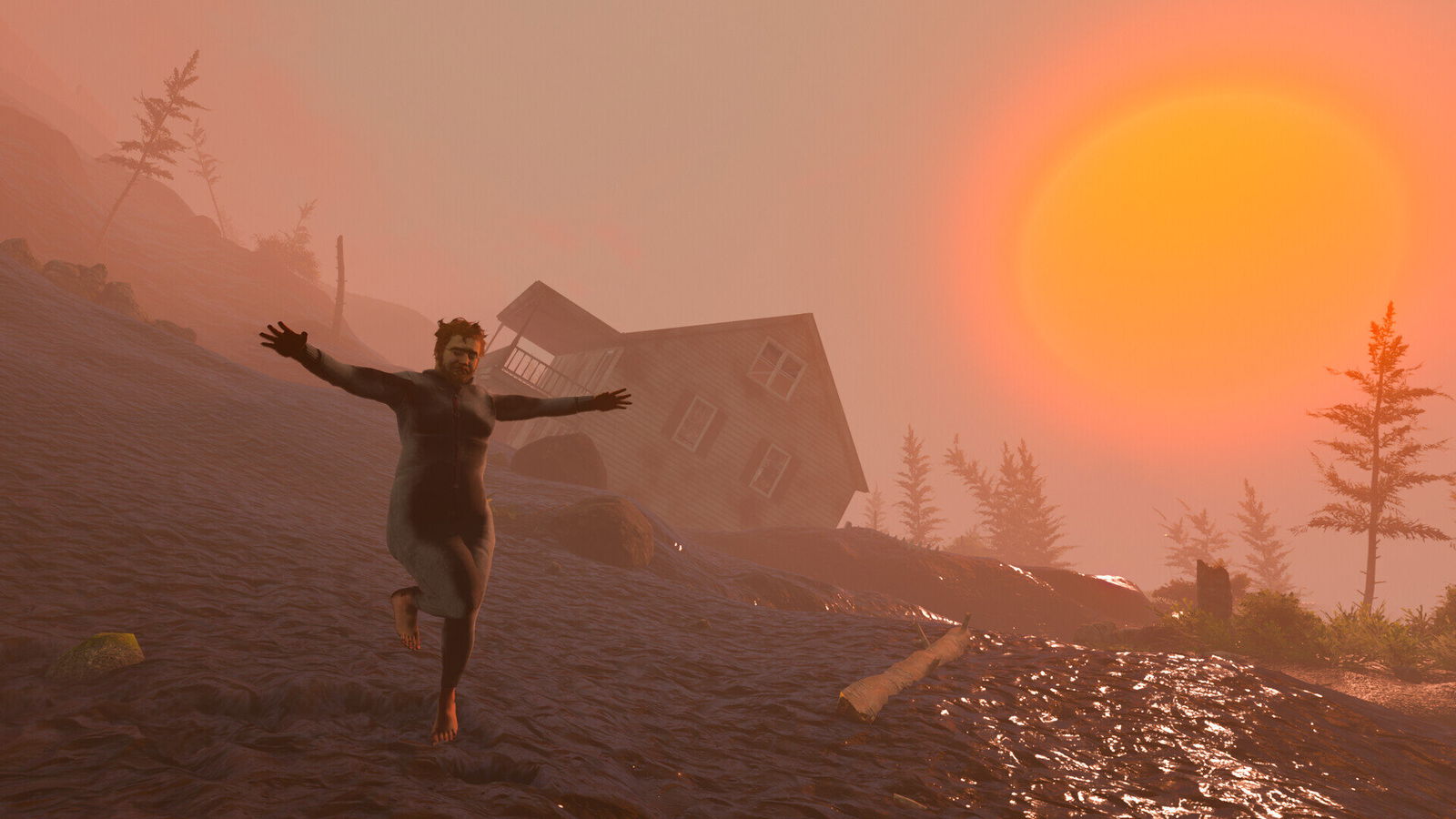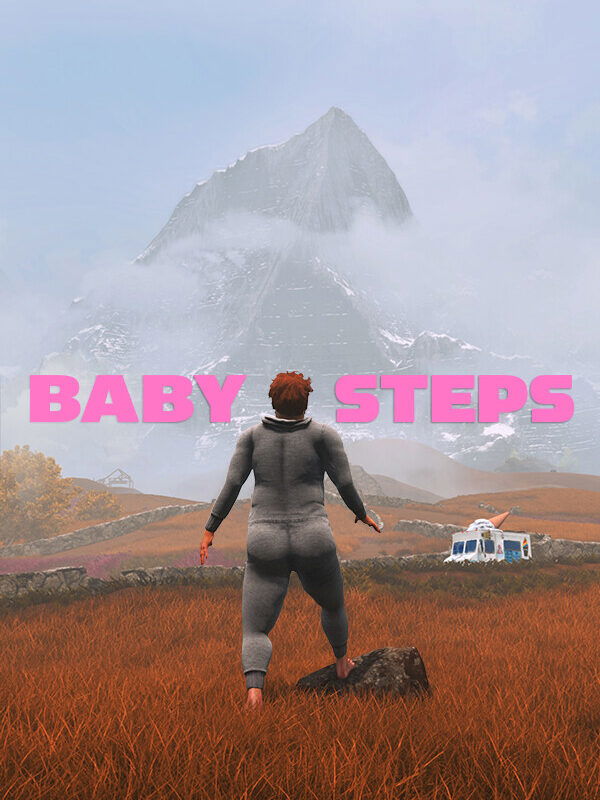Baby Steps is one of those games that makes a stronger impression when you hear about it than when you actually sit down with it. The idea is sharp: you take control of Nate, a 35-year-old man who has let life pass him by. He is unemployed, drifting and already convinced most of his opportunities are gone.
Then, as if out of nowhere, he is placed in a strange new world where he discovers an extraordinary power: he can walk. Not in the casual, natural way every human does without thinking, but in a clumsy, mechanical way that turns each step into a challenge. Every leg movement is controlled individually. Every shift of balance could send him sprawling. Walking becomes the ultimate test of patience and persistence.
On paper, that is fascinating. The absurdity of a grown man treating a basic human function like a superpower has obvious comedic potential. The metaphor of rebuilding a wasted life step by step has dramatic weight. The prospect of a game where progress is hard-won and deeply personal is exciting. For the first hour or so, Baby Steps manages to suggest it might actually deliver all of that.
The first time you string together a few confident strides, it feels like you have cracked a secret code. The first time you catch Nate from tipping over, you laugh in genuine surprise. There is a sense that this could go somewhere special. But then the repetition sets in, the presentation wears thin, and you realize the promise of the premise is never fulfilled.
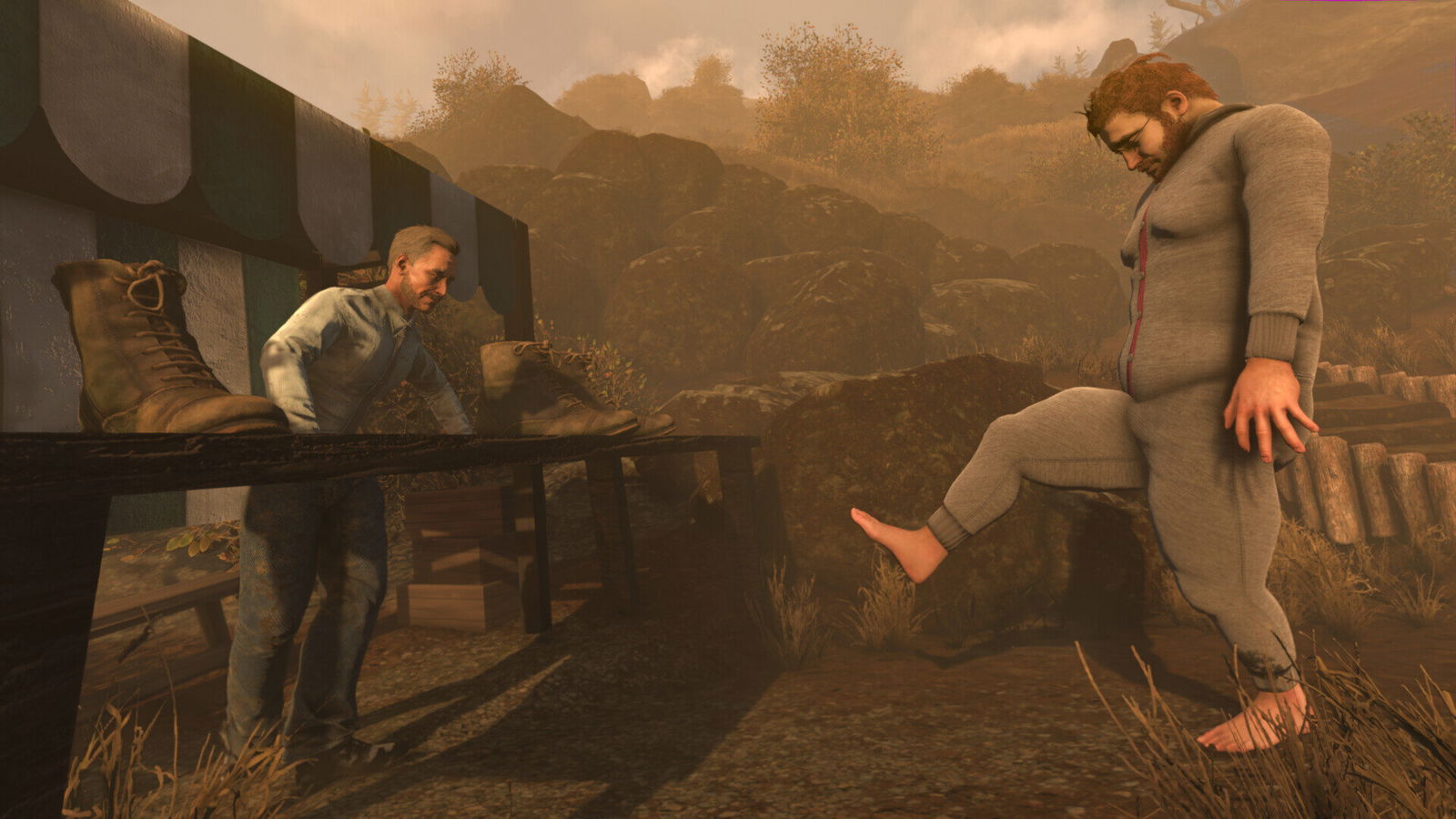
It is impossible not to compare this to Getting Up, which worked off a similar design philosophy. That game understood how to make frustration feel worthwhile. You failed constantly, but each failure had enough character to keep you entertained. When you did succeed, the payoff was immense. The environments made progress feel meaningful, the sound design reinforced every stumble and recovery, and the overall rhythm kept you coming back. Baby Steps tries to follow the same template but misses the balance completely. The frustration remains, but the catharsis is gone.
“In Baby Steps, getting across a stretch of ground mostly feels like relief that you can stop pressing buttons for a minute.”
The core walking mechanic is fine in theory. It is as clumsy as QWOP, with Nate flailing around like a puppet with tangled strings on each button press. With practice, you really can improve how smoothly you move him. You start to feel the rhythm, learn to anticipate the weight shifts and occasionally achieve something that looks like a real stride. That is impressive, but the effort never feels properly rewarded. In Getting Up, crossing a difficult section felt like winning a small war. In Baby Steps, getting across a stretch of ground mostly feels like relief that you can stop pressing buttons for a minute. The distinction matters. Relief is not the same as accomplishment.
What drags the whole thing down even further is the presentation, which is consistently underwhelming and sometimes outright bad. The sound design is the biggest problem. In a game this tactile, sound should be everything. It should sell the physical comedy of Nate’s failures and make the rare successes sing. Instead, it feels lifeless. The footfalls are flat and weightless, the environments are oddly muted, and Nate’s constant groans become irritating almost immediately.
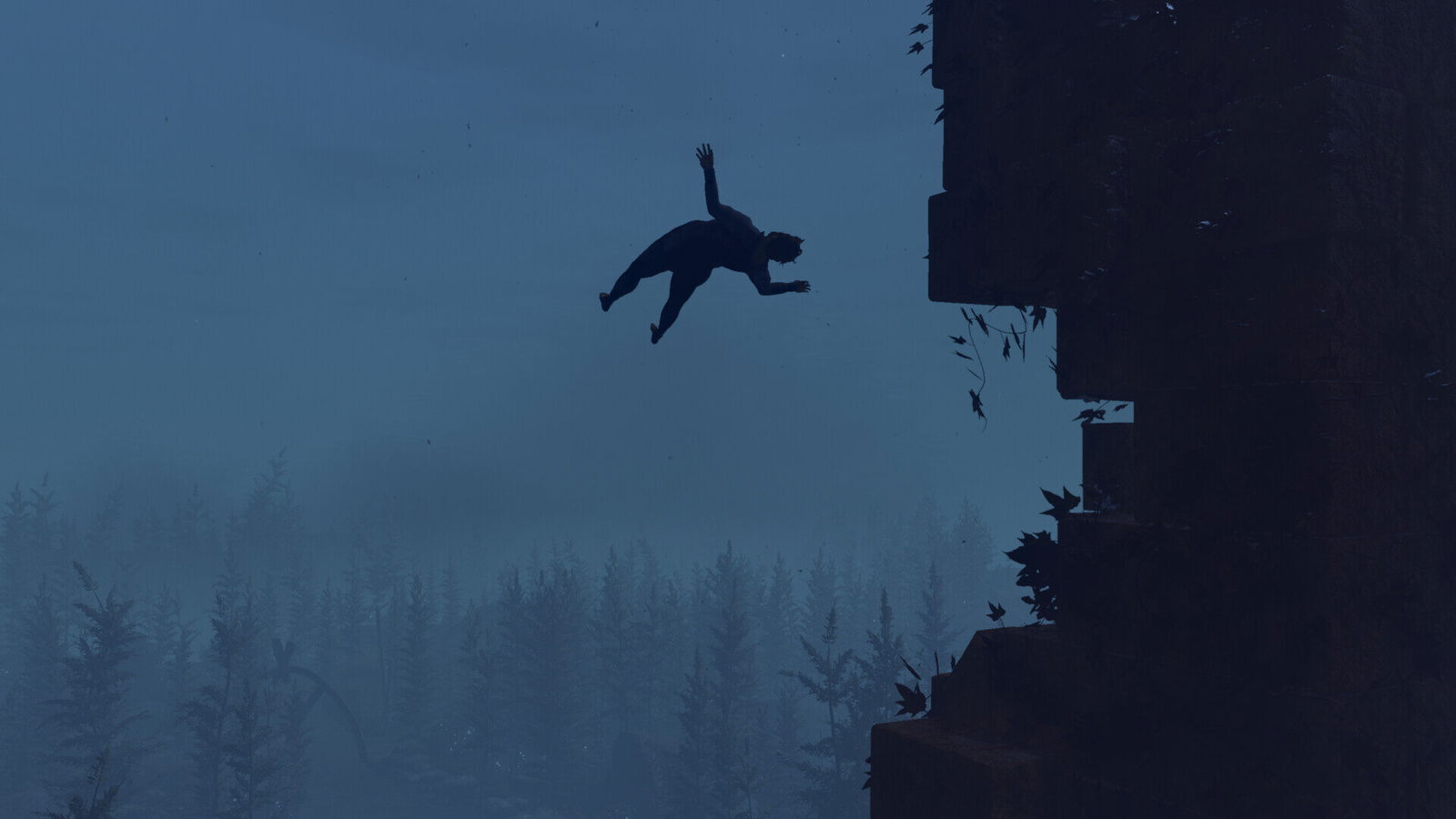
The worst part is the soundtrack, which feels like a complete misstep. Instead of giving the game atmosphere or energy, it mostly sounds like someone rhythmically making mouth noises into a microphone. It is not just forgettable. It is distracting and unpleasant, the kind of thing that makes you want to mute the game altogether. That is a disaster for a title built around sound cues and physical feedback. I have never had a game’s soundtrack outright annoy me before this.
The humour struggles just as much as the audio. Watching Nate topple over, slam into the ground or twist himself into knots is funny the first few times, but comedy depends on escalation. You need new scenarios, new variables, something to keep the gag fresh. Baby Steps does not bother. It is the same pratfall again and again, with no real variation. By the time you have seen Nate flop into the dirt for the tenth time, the laughter is gone. In a game that demands dozens of hours of practice and patience, repeating the same joke without any new spin is a recipe for exhaustion.
The narrative, meanwhile, feels like it should carry more weight than it does. Nate is written as a man who has failed himself and those around him. Walking becomes a metaphor for taking control, for piecing together a new identity one small step at a time.
There are moments where this lands: a quiet stretch of landscape, a sudden vista that suggests something larger beyond Nate’s fumbling, even a rare recovery from a stumble you thought would end in disaster. But the writing never develops Nate into more than a caricature, and the characters you meet along the way are too thin to matter. The world promises mystery and connection, but mostly feels empty. What could have been poignant ends up shallow.
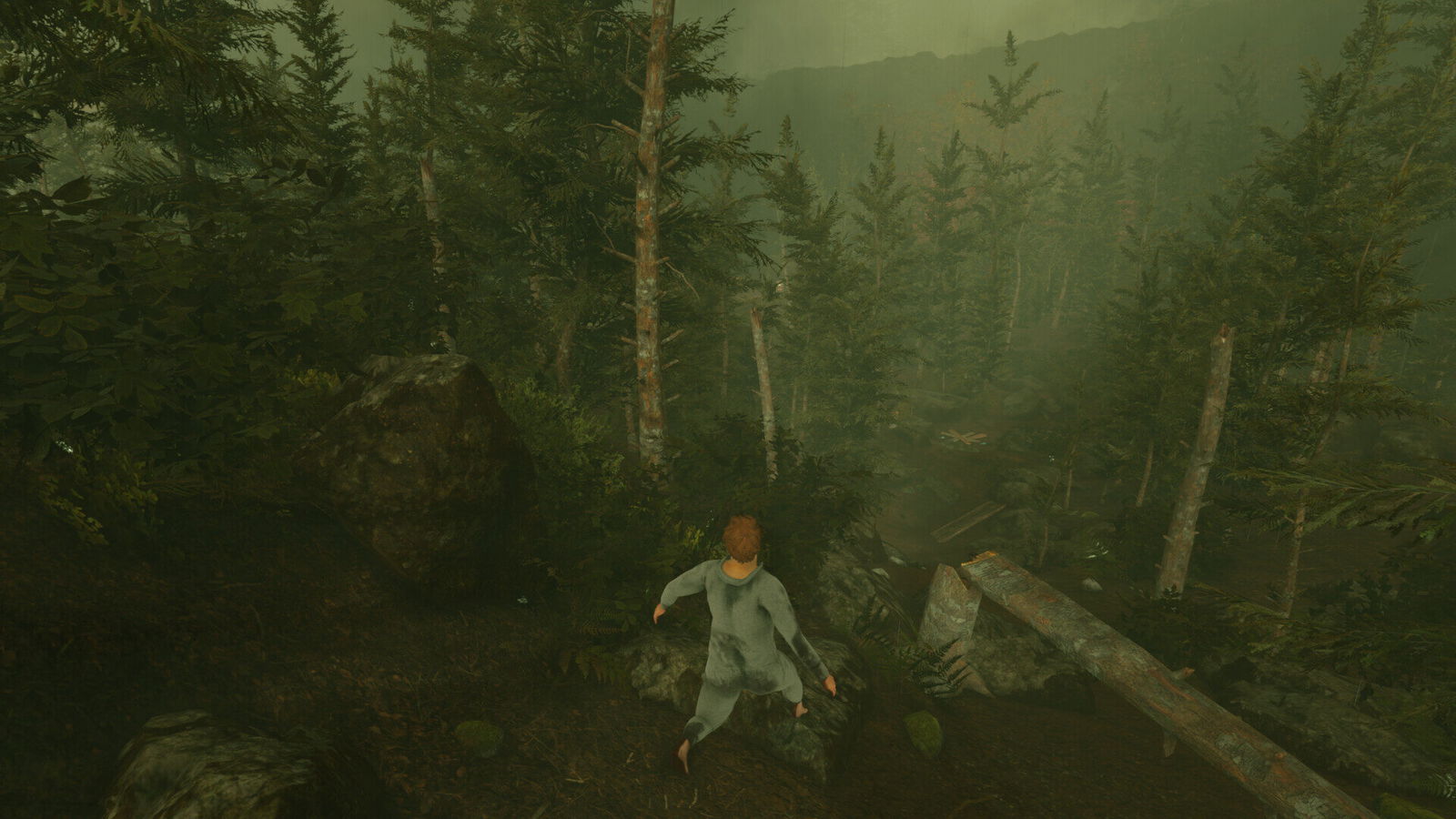
The longer you play, the more the cracks show. Persistence is supposed to be the point. You are meant to fail repeatedly, learn slowly and eventually find a rhythm—that much works. With practice, Nate can walk with surprising grace. But the bigger question is why you would want to keep practising in the first place. The world allows for exploration to find better routes, but it never feels entirely worth it.
“Baby Steps is not without value—it has ideas that deserve attention, and for players with endless patience, there is a certain satisfaction in getting it to work.”
The narrative does not offer much incentive, and the sound design actively pushes you away. Instead of being pulled forward by curiosity or joy, you are dragged forward by obligation. You keep walking, not because you want to, but because you feel you have to justify the time already spent. That is a very different kind of persistence, and not one that feels rewarding.
The most frustrating part is that the foundation is strong. The traversal system is unique, the concept is clever, and there are flashes of brilliance scattered throughout. The first time you nail a sequence of steps feels good. The first time you see a wide horizon is inspiring. The first time you laugh at an unexpected tumble is genuinely fun. But the game never finds a way to sustain those highs. Every positive moment is swallowed by long stretches of tedium, weak presentation and a soundtrack that makes you want to reach for the mute button.
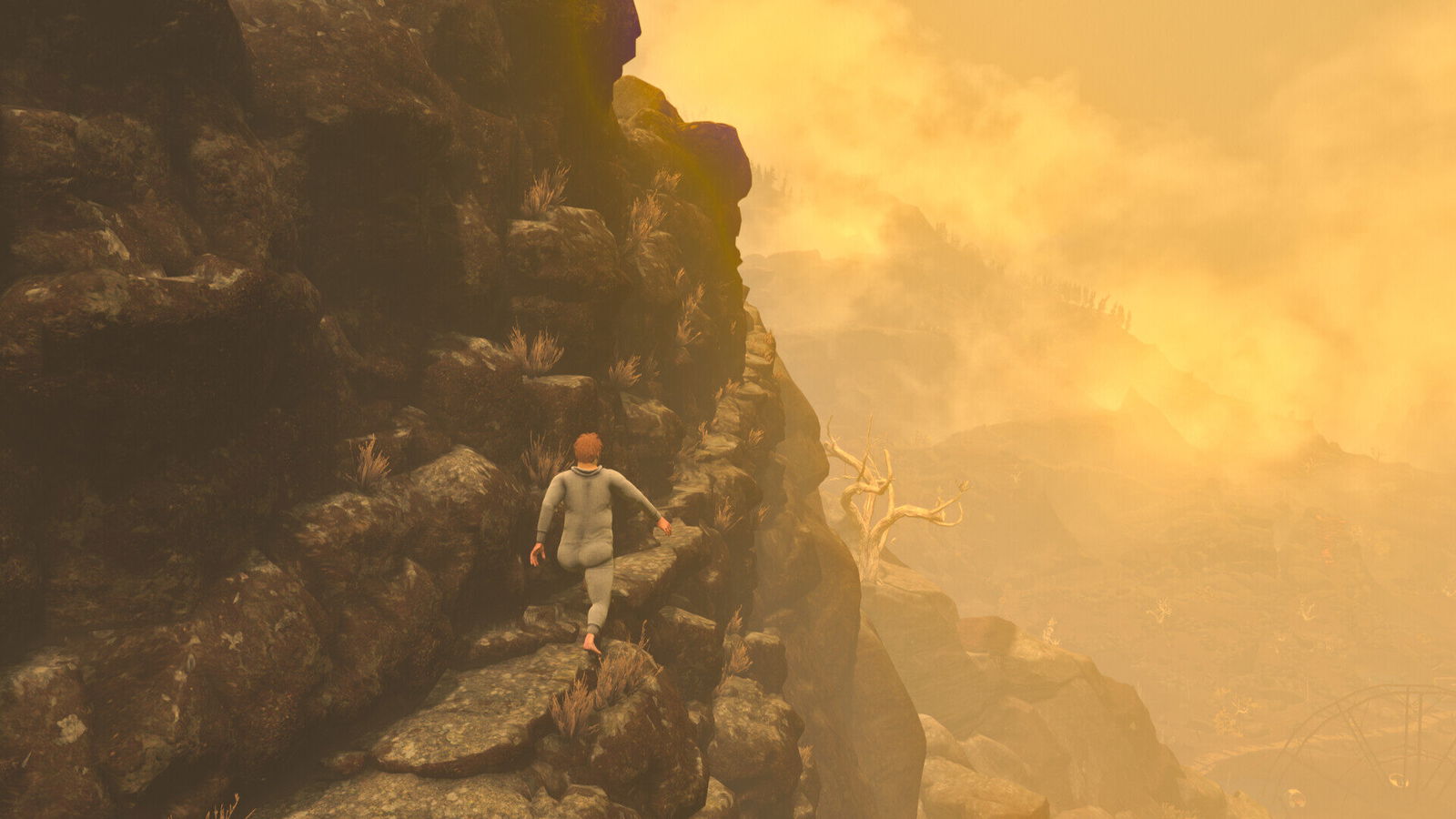
Baby Steps is not without value. It is interesting in the way experiments often are. It has ideas that deserve attention, and for players with endless patience, there is a certain satisfaction in getting it to work. But most will run out of patience long before the game rewards them.
It is a curious failure, one that stumbles on nearly every step it takes. Nate eventually learns to put one foot in front of the other, but the player never gets the same sense of progress. Instead, you are left with the image of a man shuffling forward to the sound of bad mouth noises, and it is hard not to feel you should have stopped a long time ago.
